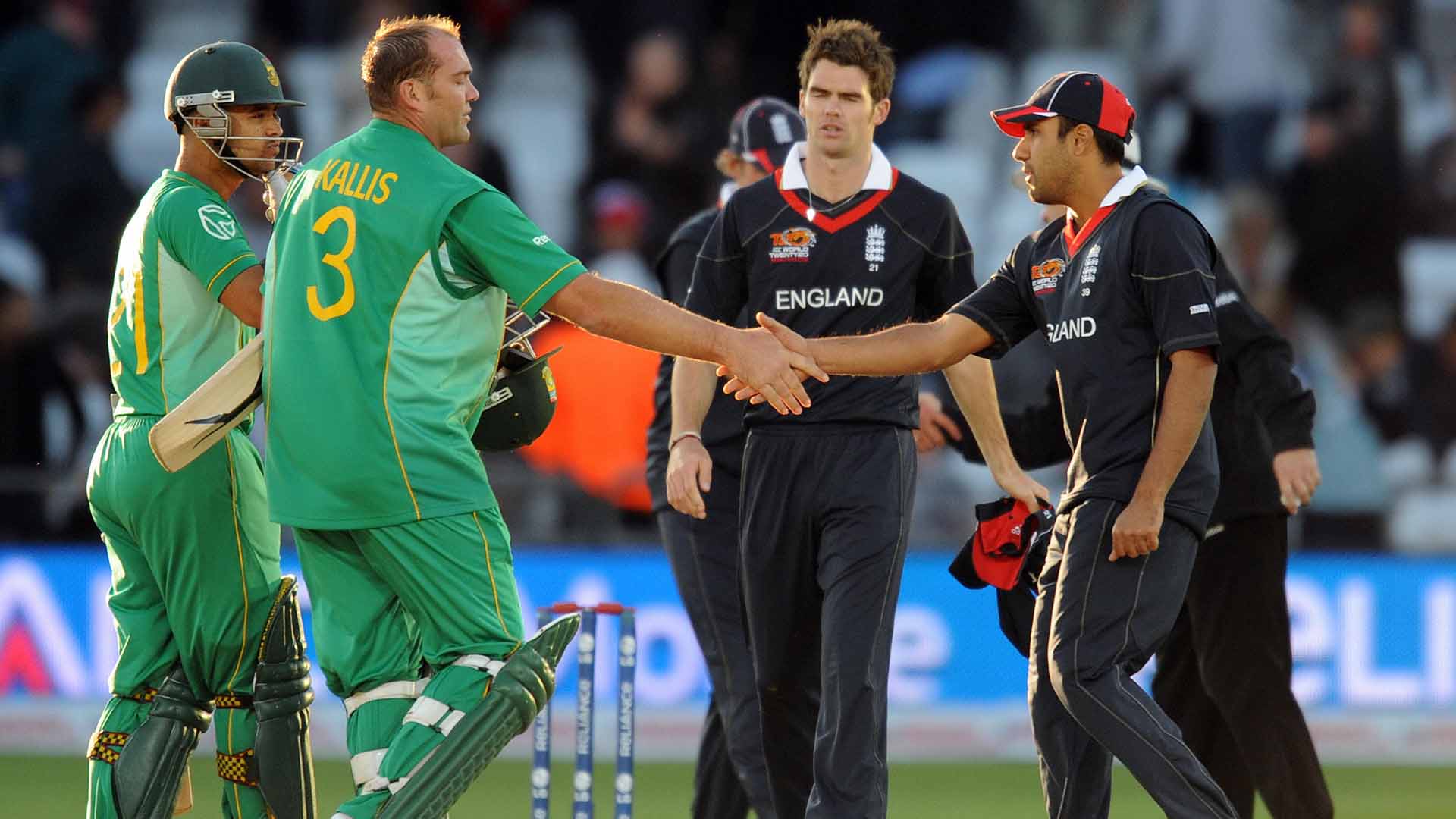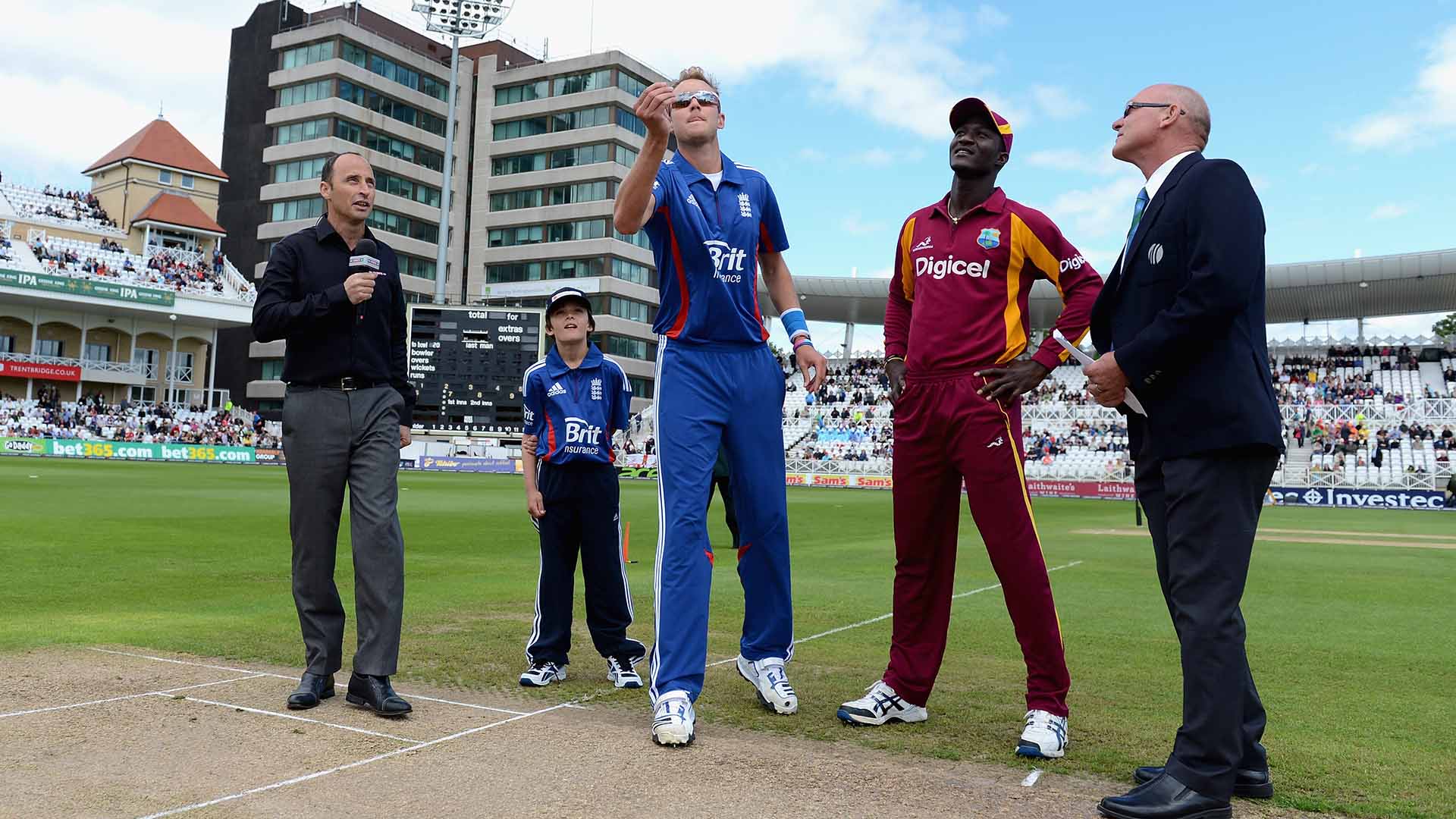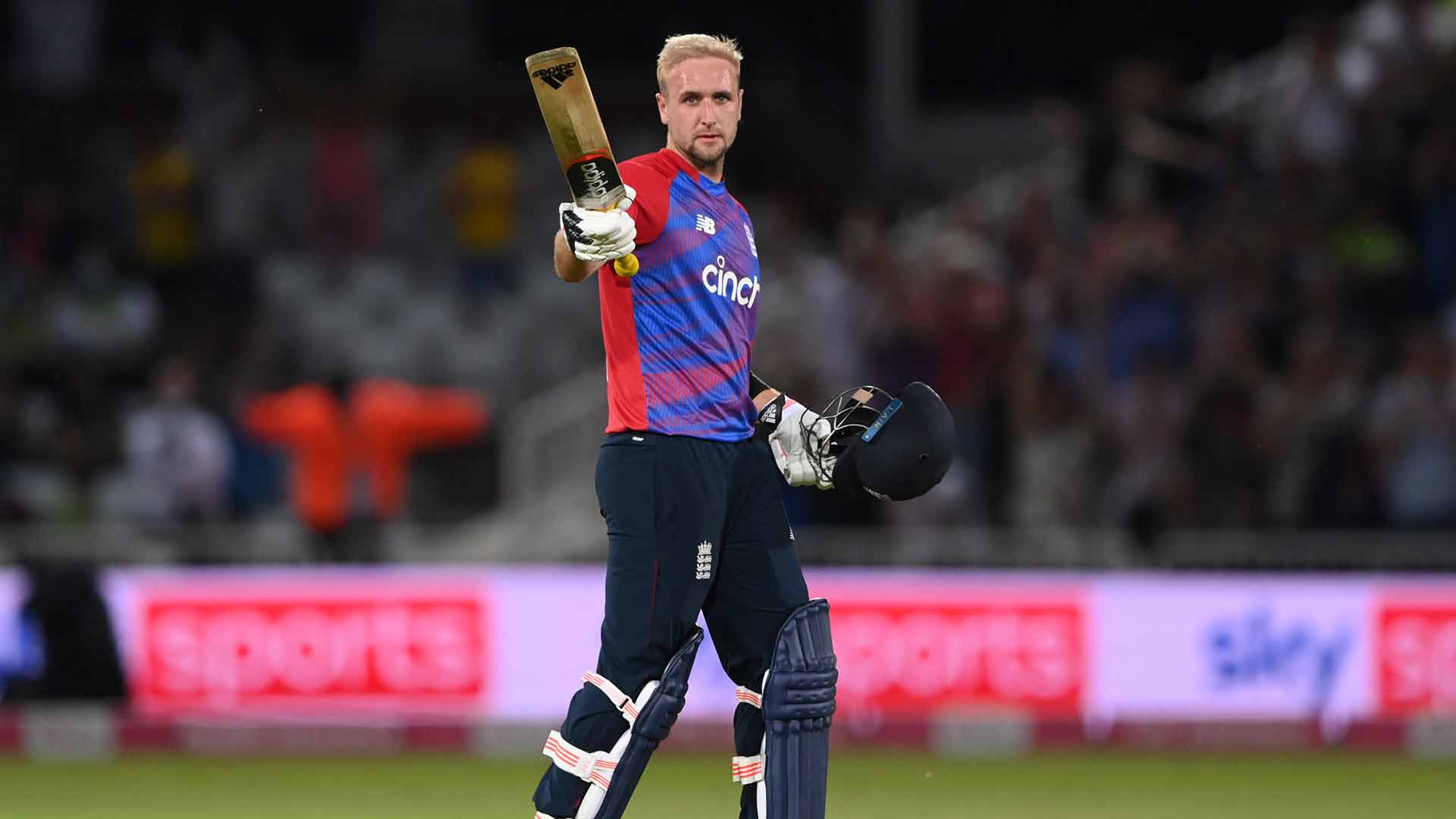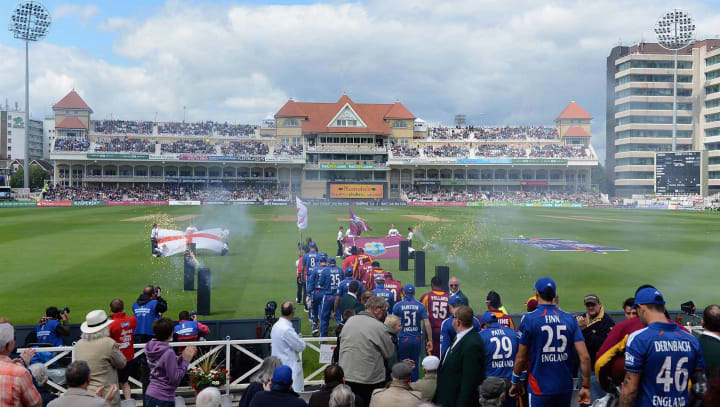Trent Bridge had to wait nine years between its second and third Twenty20 International fixtures featuring England.
Now, like buses in the capital, Nottinghamshire’s historic home will host its second shortest-format game in as many years.
The clash between the Three Lions and India will be the 13th IT20 at Trent Bridge, with the first ten held during the 2009 T20 World Cup.
Here, we take a look at England’s three previous 20-over matches in the East Midlands, against South Africa, West Indies and Pakistan.
England vs South Africa, 11 June 2009

South Africa entered the 2009 World Cup as one of the pre-tournament favourites, and put in a performance to back up their credentials, skittling the hosts for 111 in their first Super Eights match.
Not even the figures of England’s best bowler on the day, Stuart Broad, could prevent the Proteas from galloping to a seven-wicket win with ten balls to spare.
Owais Shah top scored with 38 after Paul Collingwood won the toss and elected to bat first, but none besides could muster a score greater than 19.
All of South Africa’s six-man attack picked up at least one wicket, with Wayne Parnell and Dale Steyn claiming scalps in their opening overs.
Parnell went on to claim three dismissals, while Jaques Kallis and Roelof Van Der Merwe took two each with a near-faultless bowling display. The former conceded just seven runs from his first three overs, while Albie Morkel chipped in with the tournament's first maiden.
Throughout their innings, England could only manage two sixes – both from the blade of Shah – and 10 fours, and were bowled out one delivery short of their 20 over allocation.
The Proteas, by comparison, belied the frenzied nature of T20 cricket with a serene chase.
Broad’s dismissal of Graeme Smith did little to rock the boat. Kallis and Herschelle Gibbs instead simply set about a clinical innings, hitting nine boundaries between them.
By the time Gibbs was bowled by Graeme Swann for a run-a-ball 30, South Africa were 20 short of their target – one achieved in the 19th over with Kallis unbeaten on 57.
The legendary all-rounder proved a star turn in the Rainbow Nation’s semi-final performance a week later with 64 against Pakistan, but the Shaheens ultimately ran out victors by seven runs before going on to win the title with an eight-wicket drubbing of Sri Lanka.
England vs West Indies, 24 June 2012

A Green and Gold thread wove its way through the meeting between England and West Indies in 2012, not least because of Trent Bridge hosting the one off IT20 between the sides, which the home side won by seven wickets with two balls to spare.
Nottinghamshire’s Stuart Broad captained his country while Daren Sammy led the visitors, three years prior to his stint as an Outlaw.
“With inexperience, you also get fearlessness.” Stuart Broad
Alex Hales, Samit Patel and Graeme Swann also donned their country’s colours, and a rampant Hales pulled, drove, and simply bludgeoned his way to 99 before being bowled, one agonising run short of a century.
Skipper Broad commented on the then 23-year-old Hales: “With inexperience, you also get fearlessness.”
Few would describe the opener as anything but, even a decade later.
It was a knock which breathed life into England’s chase. The Notts opener shared a 159-run second wicket partnership with Ravi Bopara after West Indies had blazed 107 off their final eight overs of their innings to set a commanding total of 172.
Steven Finn performed admirably with the ball, taking 2-22 from his four, while Swann, Broad and Patel conceded 32, 33 and 34 runs respectively.
Jade Dernbach was the victim of some brutish hitting, however, conceding 33 from his final two overs. Dwayne Smith’s 70 off 54 appeared pedestrian when compared with Dwayne Bravo’s 36-ball half century.
The shift in momentum at the back end of West Indies’ batting innings appeared to aid their early efforts with the ball, as Craig Kieswetter departed in the third over.
But they wouldn't lose another until the penultimate ball of the 19th as Bopara and Hales masterfully stroked their side towards their victory target with a combined 10 fours and five sixes.
With the Trent Bridge faithful on the edge of their seats, readying themselves to stand for an imperious ton scored by one of their own, Ravi Rampaul ripped through the right-hander’s defenses.
Hales, crestfallen, was given a rapturous ovation on departure, before Eoin Morgan saw his side over the line four deliveries later.
England vs Pakistan, 16 July 2021

If cricket supporters sought run-scoring action on England’s return to Trent Bridge following a pandemic-induced hiatus, they would have been left satisfied in 2021.
Liam Livingstone scored England’s fastest T20I century off 42 balls – beating future Trent Rocket Dawid Malan’s 48-ball effort against New Zealand in 2019 – after Barber Azam and Mohammad Rizwan guided Pakistan to their highest IT20 total of 232 with a 150-run opening partnership.
In the end, the hosts fell 31 runs short – but with 433 runs scored on the day, this was quite the spectacle.
It could have been more, but for a relatively sedate start; Pakistan were 49/0 at the end of the powerplay. They scored 152 runs off the final 10 overs, however, with Azam falling for a 49-ball 85 and Rizwan for 63 from 41.
David Willey was the pick of the English bowlers with 1-39 from his four overs, with no others able to go at an economy rate of less than 10 as Sohaib Maqsood, Fakhar Zaman, and Mohammed Hafeez scored a combined 69 off 25 balls in the middle order.
England's reply began in troubled fashion as Malan, Jonny Bairstow and Moeen Ali all departed in the powplay, but Jason Roy slapped runs as the wickets tumbled.
His 13-ball 32 helped give hopes to a miraculous chase as Livingstone joined the assault.
The Lancashire all-rounder smashed 72 runs in boundaries alone with England 120/4 off 10 overs, 40 runs ahead of Pakistan at the same stage.
His departure in the 17th over, with England seven wickets down for 183, marked the end of the game as a contest, but entertainment had been delivered in spades.
31 fours and 27 sixes were hit on the evening, equating to 26% of deliveries hit for boundaries. Those in charge of the flamethrowers were no doubt calling for extra gas as the two sides set off fireworks of their own.
*******
The Royal London Cup Final
The timeless pomp, ceremony and tradition of county cricket's historic 50-over final. 18 First-Class counties go head-to-head in this prestigious competition, aiming to emerge with the spoils at our historic venue. Secure your seats here...
